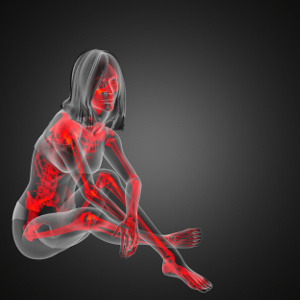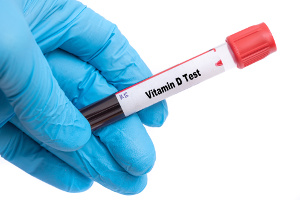afterLoad (456.27KB) (858μs)
afterInitialise (1.27MB) (38.75ms)
afterRoute (829.05KB) (7.34ms)
beforeRenderComponent com_content (36KB) (1.44ms)
Before Access::preloadComponents (all components) (115.08KB) (2.03ms)
After Access::preloadComponents (all components) (98.44KB) (1.8ms)
Before Access::getAssetRules (id:8 name:com_content) (1.13KB) (28μs)
After Access::getAssetRules (id:8 name:com_content) (7.05KB) (53μs)
afterRenderComponent com_content (1.4MB) (176ms)
afterDispatch (17.3KB) (3.65ms)
beforeRenderRawModule mod_articles_category (READ MORE...) (435.25KB) (11.3ms)
afterRenderRawModule mod_articles_category (READ MORE...) (63.27KB) (105ms)
beforeRenderRawModule mod_custom (BOOST YOUR IMMUNE DEFENSE) (6.45KB) (3.06ms)
afterRenderRawModule mod_custom (BOOST YOUR IMMUNE DEFENSE) (3.91KB) (314μs)
beforeRenderRawModule mod_tags_popular (Search) (2.36KB) (21μs)
afterRenderRawModule mod_tags_popular (Search) (30.82KB) (171ms)
beforeRenderRawModule mod_custom (Get additionel and more detailed knowledge ) (816B) (33μs)
afterRenderRawModule mod_custom (Get additionel and more detailed knowledge ) (1.53KB) (126μs)
beforeRenderRawModule mod_custom (Overview of vitamins, minerals, and essential fatty acids) (768B) (12μs)
afterRenderRawModule mod_custom (Overview of vitamins, minerals, and essential fatty acids) (960B) (50μs)
beforeRenderRawModule mod_custom (Q10 goes by many names) (608B) (11μs)
afterRenderRawModule mod_custom (Q10 goes by many names) (928B) (1.87ms)
beforeRenderRawModule mod_custom (Check this before you buy a Q10 product) (752B) (25μs)
afterRenderRawModule mod_custom (Check this before you buy a Q10 product) (944B) (58μs)
beforeRenderRawModule mod_custom (Are you taking supplements) (736B) (13μs)
afterRenderRawModule mod_custom (Are you taking supplements) (1.03KB) (1.16ms)
beforeRenderRawModule mod_custom (Weight loss that works) (736B) (27μs)
afterRenderRawModule mod_custom (Weight loss that works) (1.03KB) (107μs)
beforeRenderRawModule mod_custom (Antiaging) (720B) (12μs)
afterRenderRawModule mod_custom (Antiaging) (912B) (45μs)
beforeRenderRawModule mod_menu (Are you getting enough vitamins and minerals?) (2.5KB) (13μs)
afterRenderRawModule mod_menu (Are you getting enough vitamins and minerals?) (23.02KB) (661μs)
beforeRenderRawModule mod_menu (The key to increased well-being) (736B) (1.12ms)
afterRenderRawModule mod_menu (The key to increased well-being) (17.83KB) (484μs)
beforeRenderRawModule mod_menu (Did you know.....) (720B) (20μs)
afterRenderRawModule mod_menu (Did you know.....) (25.52KB) (308μs)
beforeRenderRawModule mod_custom (Useful Links) (1.06KB) (14μs)
afterRenderRawModule mod_custom (Useful Links) (1.02KB) (1.23ms)
beforeRenderRawModule mod_custom (Chronic fatigue tied Alan to his bed but Q10 capsules saved him:) (259.35KB) (7.46ms)
afterRenderRawModule mod_custom (Chronic fatigue tied Alan to his bed but Q10 capsules saved him:) (1.06KB) (111μs)
beforeRenderModule mod_custom (Chronic fatigue tied Alan to his bed but Q10 capsules saved him:) (768B) (5μs)
afterRenderModule mod_custom (Chronic fatigue tied Alan to his bed but Q10 capsules saved him:) (1.3KB) (68μs)
beforeRenderRawModule mod_custom (Cholesterol-lowering without side effects:) (368B) (14μs)
afterRenderRawModule mod_custom (Cholesterol-lowering without side effects:) (1.06KB) (51μs)
beforeRenderModule mod_custom (Cholesterol-lowering without side effects:) (752B) (3μs)
afterRenderModule mod_custom (Cholesterol-lowering without side effects:) (1.28KB) (30μs)
beforeRenderModule mod_articles_category (READ MORE...) (20.93KB) (3.09ms)
afterRenderModule mod_articles_category (READ MORE...) (1.25KB) (2.11ms)
beforeRenderModule mod_custom (BOOST YOUR IMMUNE DEFENSE) (6.81KB) (30μs)
afterRenderModule mod_custom (BOOST YOUR IMMUNE DEFENSE) (1.28KB) (29μs)
beforeRenderModule mod_tags_popular (Search) (1.98KB) (14μs)
afterRenderModule mod_tags_popular (Search) (1.27KB) (23μs)
beforeRenderModule mod_custom (Get additionel and more detailed knowledge ) (1.17KB) (12μs)
afterRenderModule mod_custom (Get additionel and more detailed knowledge ) (1.3KB) (21μs)
beforeRenderModule mod_custom (Overview of vitamins, minerals, and essential fatty acids) (384B) (9μs)
afterRenderModule mod_custom (Overview of vitamins, minerals, and essential fatty acids) (1.31KB) (20μs)
beforeRenderModule mod_custom (Q10 goes by many names) (208B) (10μs)
afterRenderModule mod_custom (Q10 goes by many names) (1.27KB) (19μs)
beforeRenderModule mod_custom (Check this before you buy a Q10 product) (352B) (9μs)
afterRenderModule mod_custom (Check this before you buy a Q10 product) (1.28KB) (20μs)
beforeRenderModule mod_custom (Are you taking supplements) (352B) (9μs)
afterRenderModule mod_custom (Are you taking supplements) (1.28KB) (19μs)
beforeRenderModule mod_custom (Weight loss that works) (336B) (8μs)
afterRenderModule mod_custom (Weight loss that works) (1.27KB) (19μs)
beforeRenderModule mod_custom (Antiaging) (336B) (8μs)
afterRenderModule mod_custom (Antiaging) (3.77KB) (20μs)
beforeRenderModule mod_menu (Are you getting enough vitamins and minerals?) (2.13KB) (11μs)
afterRenderModule mod_menu (Are you getting enough vitamins and minerals?) (1.3KB) (20μs)
beforeRenderModule mod_menu (The key to increased well-being) (352B) (10μs)
afterRenderModule mod_menu (The key to increased well-being) (1.28KB) (20μs)
beforeRenderModule mod_menu (Did you know.....) (336B) (10μs)
afterRenderModule mod_menu (Did you know.....) (1.27KB) (21μs)
beforeRenderModule mod_custom (Useful Links) (1.44KB) (9μs)
afterRenderModule mod_custom (Useful Links) (1.27KB) (19μs)
beforeRenderRawModule mod_menu (Main Menu - English) (29.14KB) (2.82ms)
afterRenderRawModule mod_menu (Main Menu - English) (191.2KB) (6.45ms)
beforeRenderModule mod_menu (Main Menu - English) (720B) (8μs)
afterRenderModule mod_menu (Main Menu - English) (4.86KB) (82μs)
beforeRenderRawModule mod_languages (Sprogskift) (3.94KB) (24μs)
afterRenderRawModule mod_languages (Sprogskift) (86.56KB) (6.4ms)
beforeRenderModule mod_languages (Sprogskift) (720B) (9μs)
afterRenderModule mod_languages (Sprogskift) (5.31KB) (27μs)
beforeRenderRawModule mod_finder () (6.34KB) (15μs)
afterRenderRawModule mod_finder () (64.59KB) (7.42ms)
beforeRenderModule mod_finder () (704B) (7μs)
afterRenderModule mod_finder () (3.29KB) (42μs)
beforeRenderRawModule mod_custom () (6.62KB) (150μs)
afterRenderRawModule mod_custom () (26.51KB) (4.2ms)
beforeRenderModule mod_custom () (704B) (9μs)
afterRenderModule mod_custom () (1.23KB) (67μs)
beforeRenderRawModule mod_menu (Main Menu - English) (5.07KB) (986μs)
afterRenderRawModule mod_menu (Main Menu - English) (6.3KB) (2.73ms)
beforeRenderModule mod_menu (Main Menu - English) (720B) (6μs)
afterRenderModule mod_menu (Main Menu - English) (1.25KB) (72μs)
beforeRenderRawModule mod_languages (Sprogskift Mobil) (912B) (20μs)
afterRenderRawModule mod_languages (Sprogskift Mobil) (3.89KB) (749μs)
beforeRenderModule mod_languages (Sprogskift Mobil) (720B) (3μs)
afterRenderModule mod_languages (Sprogskift Mobil) (1.27KB) (33μs)
beforeRenderRawModule mod_finder () (2.3KB) (11μs)
afterRenderRawModule mod_finder () (6.29KB) (3.87ms)
beforeRenderModule mod_finder () (704B) (6μs)
afterRenderModule mod_finder () (1.23KB) (61μs)
beforeRenderRawModule mod_custom () (8.66KB) (202μs)
afterRenderRawModule mod_custom () (904B) (185μs)
beforeRenderModule mod_custom () (704B) (3μs)
afterRenderModule mod_custom () (2.43KB) (29μs)
beforeRenderRawModule mod_custom () (688B) (84μs)
afterRenderRawModule mod_custom () (896B) (1.3ms)
beforeRenderModule mod_custom () (704B) (5μs)
afterRenderModule mod_custom () (2.71KB) (34μs)
afterRender (299.54KB) (20.45ms)
| 1 x afterRenderComponent com_content (1.4MB) (29.19%) | 175.94ms |
| 1 x afterRenderRawModule mod_tags_popular (Search) (30.82KB) (28.43%) | 171.38ms |
| 1 x afterRenderRawModule mod_articles_category (READ MORE...) (63.27KB) (17.38%) | 104.76ms |
| 1 x afterInitialise (1.27MB) (6.43%) | 38.75ms |
| 1 x afterRender (299.54KB) (3.39%) | 20.45ms |
| 1 x beforeRenderRawModule mod_articles_category (READ MORE...) (435.25KB) (1.88%) | 11.30ms |
| 1 x beforeRenderRawModule mod_custom (Chronic fatigue tied Alan to his bed but Q10 capsules saved him:) (259.35KB) (1.24%) | 7.46ms |
| 1 x afterRenderRawModule mod_finder () (64.59KB) (1.23%) | 7.42ms |
| 1 x afterRoute (829.05KB) (1.22%) | 7.34ms |
| 1 x afterRenderRawModule mod_menu (Main Menu - English) (191.2KB) (1.07%) | 6.45ms |
| 1 x afterRenderRawModule mod_languages (Sprogskift) (86.56KB) (1.06%) | 6.40ms |
| 1 x afterRenderRawModule mod_custom () (26.51KB) (0.7%) | 4.20ms |
| 1 x afterRenderRawModule mod_finder () (6.29KB) (0.64%) | 3.87ms |
| 1 x afterDispatch (17.3KB) (0.61%) | 3.65ms |
| 1 x beforeRenderModule mod_articles_category (READ MORE...) (20.93KB) (0.51%) | 3.09ms |
| 1 x beforeRenderRawModule mod_custom (BOOST YOUR IMMUNE DEFENSE) (6.45KB) (0.51%) | 3.06ms |
| 1 x beforeRenderRawModule mod_menu (Main Menu - English) (29.14KB) (0.47%) | 2.82ms |
| 1 x afterRenderRawModule mod_menu (Main Menu - English) (6.3KB) (0.45%) | 2.73ms |
| 1 x afterRenderModule mod_articles_category (READ MORE...) (1.25KB) (0.35%) | 2.11ms |
| 1 x Before Access::preloadComponents (all components) (115.08KB) (0.34%) | 2.03ms |
| 1 x afterRenderRawModule mod_custom (Q10 goes by many names) (928B) (0.31%) | 1.87ms |
| 1 x After Access::preloadComponents (all components) (98.44KB) (0.3%) | 1.80ms |
| 1 x beforeRenderComponent com_content (36KB) (0.24%) | 1.44ms |
| 1 x afterRenderRawModule mod_custom () (896B) (0.22%) | 1.30ms |
| 1 x afterRenderRawModule mod_custom (Useful Links) (1.02KB) (0.2%) | 1.23ms |
| 1 x afterRenderRawModule mod_custom (Are you taking supplements) (1.03KB) (0.19%) | 1.16ms |
| 1 x beforeRenderRawModule mod_menu (The key to increased well-being) (736B) (0.19%) | 1.12ms |
| 1 x beforeRenderRawModule mod_menu (Main Menu - English) (5.07KB) (0.16%) | 986μs |
| 1 x afterLoad (456.27KB) (0.14%) | 858μs |
| 1 x afterRenderRawModule mod_languages (Sprogskift Mobil) (3.89KB) (0.12%) | 749μs |
| 1 x afterRenderRawModule mod_menu (Are you getting enough vitamins and minerals?) (23.02KB) (0.11%) | 661μs |
| 1 x afterRenderRawModule mod_menu (The key to increased well-being) (17.83KB) (0.08%) | 484μs |
| 1 x afterRenderRawModule mod_custom (BOOST YOUR IMMUNE DEFENSE) (3.91KB) (0.05%) | 314μs |
| 1 x afterRenderRawModule mod_menu (Did you know.....) (25.52KB) (0.05%) | 308μs |
| 1 x beforeRenderRawModule mod_custom () (8.66KB) (0.03%) | 202μs |
| 1 x afterRenderRawModule mod_custom () (904B) (0.03%) | 185μs |
| 1 x beforeRenderRawModule mod_custom () (6.62KB) (0.02%) | 150μs |
| 1 x afterRenderRawModule mod_custom (Get additionel and more detailed knowledge ) (1.53KB) (0.02%) | 126μs |
| 1 x afterRenderRawModule mod_custom (Chronic fatigue tied Alan to his bed but Q10 capsules saved him:) (1.06KB) (0.02%) | 111μs |
| 1 x afterRenderRawModule mod_custom (Weight loss that works) (1.03KB) (0.02%) | 107μs |
| 1 x beforeRenderRawModule mod_custom () (688B) (0.01%) | 84μs |
| 1 x afterRenderModule mod_menu (Main Menu - English) (4.86KB) (0.01%) | 82μs |
| 1 x afterRenderModule mod_menu (Main Menu - English) (1.25KB) (0.01%) | 72μs |
| 1 x afterRenderModule mod_custom (Chronic fatigue tied Alan to his bed but Q10 capsules saved him:) (1.3KB) (0.01%) | 68μs |
| 1 x afterRenderModule mod_custom () (1.23KB) (0.01%) | 67μs |
| 1 x afterRenderModule mod_finder () (1.23KB) (0.01%) | 61μs |
| 1 x afterRenderRawModule mod_custom (Check this before you buy a Q10 product) (944B) (0.01%) | 58μs |
| 1 x After Access::getAssetRules (id:8 name:com_content) (7.05KB) (0.01%) | 53μs |
| 1 x afterRenderRawModule mod_custom (Cholesterol-lowering without side effects:) (1.06KB) (0.01%) | 51μs |
| 1 x afterRenderRawModule mod_custom (Overview of vitamins, minerals, and essential fatty acids) (960B) (0.01%) | 50μs |
| 1 x afterRenderRawModule mod_custom (Antiaging) (912B) (0.01%) | 45μs |
| 1 x afterRenderModule mod_finder () (3.29KB) (0.01%) | 42μs |
| 1 x afterRenderModule mod_custom () (2.71KB) (0.01%) | 34μs |
| 1 x beforeRenderRawModule mod_custom (Get additionel and more detailed knowledge ) (816B) (0.01%) | 33μs |
| 1 x afterRenderModule mod_languages (Sprogskift Mobil) (1.27KB) (0.01%) | 33μs |
| 1 x afterRenderModule mod_custom (Cholesterol-lowering without side effects:) (1.28KB) (0%) | 30μs |
| 1 x beforeRenderModule mod_custom (BOOST YOUR IMMUNE DEFENSE) (6.81KB) (0%) | 30μs |
| 1 x afterRenderModule mod_custom (BOOST YOUR IMMUNE DEFENSE) (1.28KB) (0%) | 29μs |
| 1 x afterRenderModule mod_custom () (2.43KB) (0%) | 29μs |
| 1 x Before Access::getAssetRules (id:8 name:com_content) (1.13KB) (0%) | 28μs |
| 1 x afterRenderModule mod_languages (Sprogskift) (5.31KB) (0%) | 27μs |
| 1 x beforeRenderRawModule mod_custom (Weight loss that works) (736B) (0%) | 27μs |
| 1 x beforeRenderRawModule mod_custom (Check this before you buy a Q10 product) (752B) (0%) | 25μs |
| 1 x beforeRenderRawModule mod_languages (Sprogskift) (3.94KB) (0%) | 24μs |
| 1 x afterRenderModule mod_tags_popular (Search) (1.27KB) (0%) | 23μs |
| 1 x beforeRenderRawModule mod_tags_popular (Search) (2.36KB) (0%) | 21μs |
| 1 x afterRenderModule mod_custom (Get additionel and more detailed knowledge ) (1.3KB) (0%) | 21μs |
| 1 x afterRenderModule mod_menu (Did you know.....) (1.27KB) (0%) | 21μs |
| 1 x beforeRenderRawModule mod_menu (Did you know.....) (720B) (0%) | 20μs |
| 1 x afterRenderModule mod_custom (Overview of vitamins, minerals, and essential fatty acids) (1.31KB) (0%) | 20μs |
| 1 x afterRenderModule mod_custom (Check this before you buy a Q10 product) (1.28KB) (0%) | 20μs |
| 1 x afterRenderModule mod_custom (Antiaging) (3.77KB) (0%) | 20μs |
| 1 x afterRenderModule mod_menu (Are you getting enough vitamins and minerals?) (1.3KB) (0%) | 20μs |
| 1 x afterRenderModule mod_menu (The key to increased well-being) (1.28KB) (0%) | 20μs |
| 1 x beforeRenderRawModule mod_languages (Sprogskift Mobil) (912B) (0%) | 20μs |
| 1 x afterRenderModule mod_custom (Q10 goes by many names) (1.27KB) (0%) | 19μs |
| 1 x afterRenderModule mod_custom (Are you taking supplements) (1.28KB) (0%) | 19μs |
| 1 x afterRenderModule mod_custom (Useful Links) (1.27KB) (0%) | 19μs |
| 1 x afterRenderModule mod_custom (Weight loss that works) (1.27KB) (0%) | 19μs |
| 3 x beforeRenderModule mod_custom () (704B) (0%) | 17μs |
| 1 x beforeRenderRawModule mod_finder () (6.34KB) (0%) | 15μs |
| 2 x beforeRenderModule mod_menu (Main Menu - English) (720B) (0%) | 14μs |
| 1 x beforeRenderRawModule mod_custom (Useful Links) (1.06KB) (0%) | 14μs |
| 1 x beforeRenderRawModule mod_custom (Cholesterol-lowering without side effects:) (368B) (0%) | 14μs |
| 1 x beforeRenderModule mod_tags_popular (Search) (1.98KB) (0%) | 14μs |
| 1 x beforeRenderRawModule mod_custom (Are you taking supplements) (736B) (0%) | 13μs |
| 2 x beforeRenderModule mod_finder () (704B) (0%) | 13μs |
| 1 x beforeRenderRawModule mod_menu (Are you getting enough vitamins and minerals?) (2.5KB) (0%) | 13μs |
| 1 x beforeRenderRawModule mod_custom (Overview of vitamins, minerals, and essential fatty acids) (768B) (0%) | 12μs |
| 1 x beforeRenderModule mod_custom (Get additionel and more detailed knowledge ) (1.17KB) (0%) | 12μs |
| 1 x beforeRenderRawModule mod_custom (Antiaging) (720B) (0%) | 12μs |
| 1 x beforeRenderRawModule mod_custom (Q10 goes by many names) (608B) (0%) | 11μs |
| 1 x beforeRenderModule mod_menu (Are you getting enough vitamins and minerals?) (2.13KB) (0%) | 11μs |
| 1 x beforeRenderRawModule mod_finder () (2.3KB) (0%) | 11μs |
| 1 x beforeRenderModule mod_custom (Q10 goes by many names) (208B) (0%) | 10μs |
| 1 x beforeRenderModule mod_menu (The key to increased well-being) (352B) (0%) | 10μs |
| 1 x beforeRenderModule mod_menu (Did you know.....) (336B) (0%) | 10μs |
| 1 x beforeRenderModule mod_custom (Check this before you buy a Q10 product) (352B) (0%) | 9μs |
| 1 x beforeRenderModule mod_custom (Overview of vitamins, minerals, and essential fatty acids) (384B) (0%) | 9μs |
| 1 x beforeRenderModule mod_custom (Are you taking supplements) (352B) (0%) | 9μs |
| 1 x beforeRenderModule mod_custom (Useful Links) (1.44KB) (0%) | 9μs |
| 1 x beforeRenderModule mod_languages (Sprogskift) (720B) (0%) | 9μs |
| 1 x beforeRenderModule mod_custom (Weight loss that works) (336B) (0%) | 8μs |
| 1 x beforeRenderModule mod_custom (Antiaging) (336B) (0%) | 8μs |
| 1 x beforeRenderModule mod_custom (Chronic fatigue tied Alan to his bed but Q10 capsules saved him:) (768B) (0%) | 5μs |
| 1 x beforeRenderModule mod_custom (Cholesterol-lowering without side effects:) (752B) (0%) | 3μs |
| 1 x beforeRenderModule mod_languages (Sprogskift Mobil) (720B) (0%) | 3μs |
 Selenium is a trace element that supports well over 25 different selenoproteins, which are important for our energy turnover, blood sugar balance, metabolism, cell protection, and a host of other essential functions. A group of scientists from Rutgers University in New Jersey, USA, has just uncovered the mechanisms involved in getting selenium into the “engine room” of the cells, from where it is metabolized into the different selenoproteins. According to the scientists, this new insight into the metabolism of selenium may lead to new therapies that can treat a variety of diseases such as diabetes, metabolic disorders, and cancer.
Selenium is a trace element that supports well over 25 different selenoproteins, which are important for our energy turnover, blood sugar balance, metabolism, cell protection, and a host of other essential functions. A group of scientists from Rutgers University in New Jersey, USA, has just uncovered the mechanisms involved in getting selenium into the “engine room” of the cells, from where it is metabolized into the different selenoproteins. According to the scientists, this new insight into the metabolism of selenium may lead to new therapies that can treat a variety of diseases such as diabetes, metabolic disorders, and cancer.







 Blood levels of
Blood levels of  Calcium and vitamin D normally get all the attention when it comes to bone health. However, magnesium also plays a crucial, but often overlooked, role. This was demonstrated in a large population study that is published in Frontiers in Nutrition. The study links lower dietary magnesium to a greater risk of developing osteoporosis, especially for women aged 55 years and older. Osteoporosis normally takes many years to develop so it is vital to get plenty of magnesium from the diet or from supplements. Also, beware that excessive calcium intake, antacids, and diuretics block the body’s ability to absorb and utilize magnesium.
Calcium and vitamin D normally get all the attention when it comes to bone health. However, magnesium also plays a crucial, but often overlooked, role. This was demonstrated in a large population study that is published in Frontiers in Nutrition. The study links lower dietary magnesium to a greater risk of developing osteoporosis, especially for women aged 55 years and older. Osteoporosis normally takes many years to develop so it is vital to get plenty of magnesium from the diet or from supplements. Also, beware that excessive calcium intake, antacids, and diuretics block the body’s ability to absorb and utilize magnesium. Immunotherapy has a special potential when used to treat cancer, which is because this particular type of therapy inhibits special molecules that block the body’s own defense mechanism against cancer cells. A team of scientists from Texas has discovered that
Immunotherapy has a special potential when used to treat cancer, which is because this particular type of therapy inhibits special molecules that block the body’s own defense mechanism against cancer cells. A team of scientists from Texas has discovered that  Many critically ill patients lack
Many critically ill patients lack  Primary
Primary  Non-alcoholic fatty liver disease (NAFLD) is an insidious disease that is spreading like a bushfire, and it is typically seen in connection with overweight. Many people with the disease develop a type of liver inflammation and scarring that can be potentially life-threatening. According to a study that is published in Journal of Hepatology, supplementation with
Non-alcoholic fatty liver disease (NAFLD) is an insidious disease that is spreading like a bushfire, and it is typically seen in connection with overweight. Many people with the disease develop a type of liver inflammation and scarring that can be potentially life-threatening. According to a study that is published in Journal of Hepatology, supplementation with  Cardiovascular disease is the leading cause of death worldwide but a new Dutch study has revealed that older patients who have suffered a previous heart attack can lower their risk of early death caused by cardiovascular disease and other causes by getting enough
Cardiovascular disease is the leading cause of death worldwide but a new Dutch study has revealed that older patients who have suffered a previous heart attack can lower their risk of early death caused by cardiovascular disease and other causes by getting enough  Babies and small children are less likely to develop croup if their mothers have taken high-dosed
Babies and small children are less likely to develop croup if their mothers have taken high-dosed  Cystic fibrosis is a serious condition that affects the respiratory tract. It comes with chronic inflammation and sticky mucous and is known to cause early death. Patients who take high-dosed
Cystic fibrosis is a serious condition that affects the respiratory tract. It comes with chronic inflammation and sticky mucous and is known to cause early death. Patients who take high-dosed  Because COVID-19 mutates from time to time, a vaccine can only provide temporary protection. Also, studies suggest that what makes COVID-19 dangerous is when the immune defense overreacts by launching so-called hyperinflammation that can damage the circulatory system and healthy tissues. The omega-3 fatty acids in fish oil turn out to have the potential to prevent COVID-19 infections from becoming life-threatening due to hyperinflammation. That way, fish oil can also help improve survival, according to a review article that is published in International Journal of General Medicine.
Because COVID-19 mutates from time to time, a vaccine can only provide temporary protection. Also, studies suggest that what makes COVID-19 dangerous is when the immune defense overreacts by launching so-called hyperinflammation that can damage the circulatory system and healthy tissues. The omega-3 fatty acids in fish oil turn out to have the potential to prevent COVID-19 infections from becoming life-threatening due to hyperinflammation. That way, fish oil can also help improve survival, according to a review article that is published in International Journal of General Medicine. "After about one week of taking the Q10 supplement I could feel a huge difference," says 23-year old Alan Piccini, who has been suffering from extreme fatigue and muscle aches ever since he was a child.
"After about one week of taking the Q10 supplement I could feel a huge difference," says 23-year old Alan Piccini, who has been suffering from extreme fatigue and muscle aches ever since he was a child. “Taking capsules with co-enzyme Q10 has freed me of the severe side effects of my cholesterol lowering medicine,” Mrs Franken explains.
“Taking capsules with co-enzyme Q10 has freed me of the severe side effects of my cholesterol lowering medicine,” Mrs Franken explains.